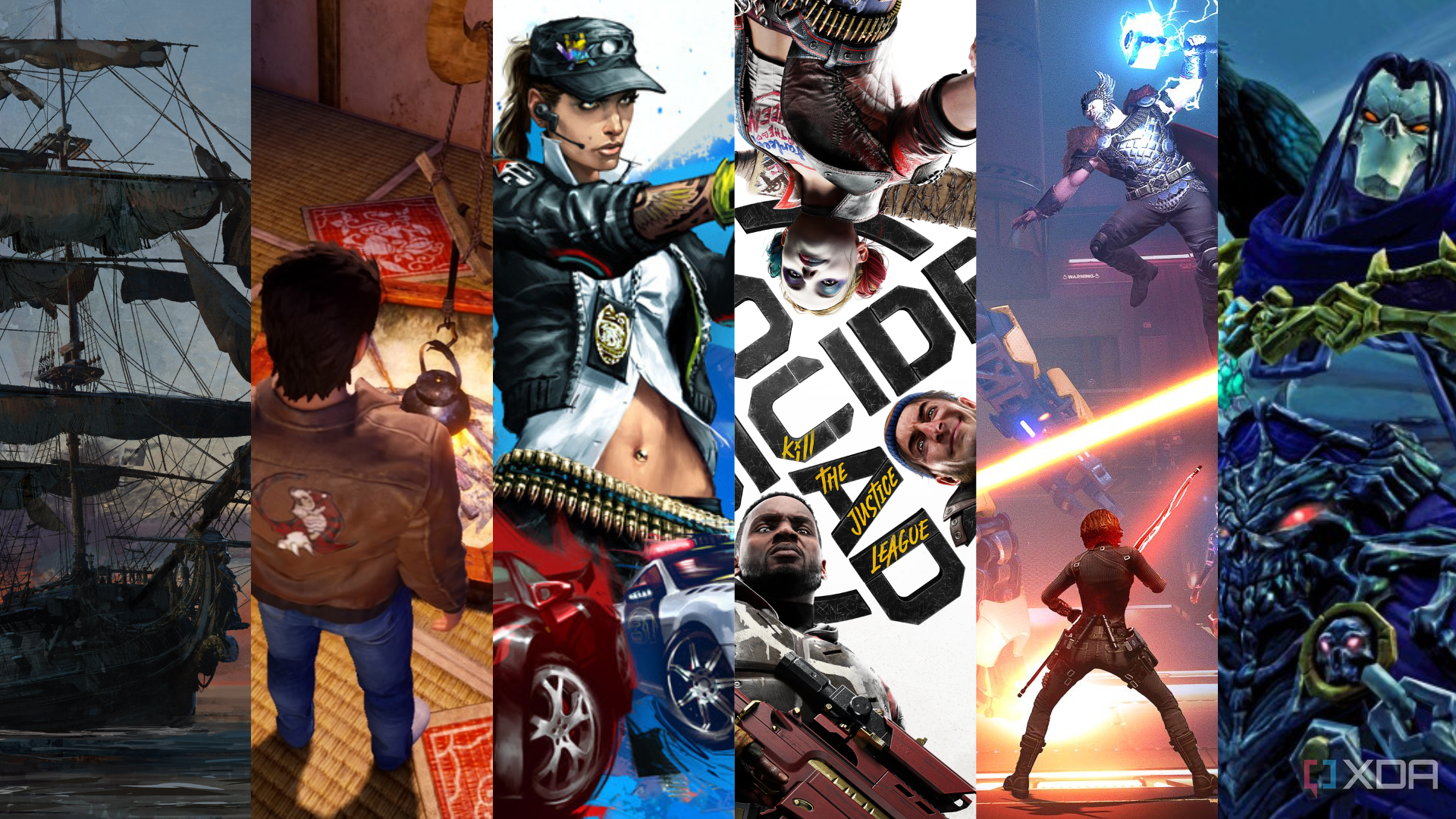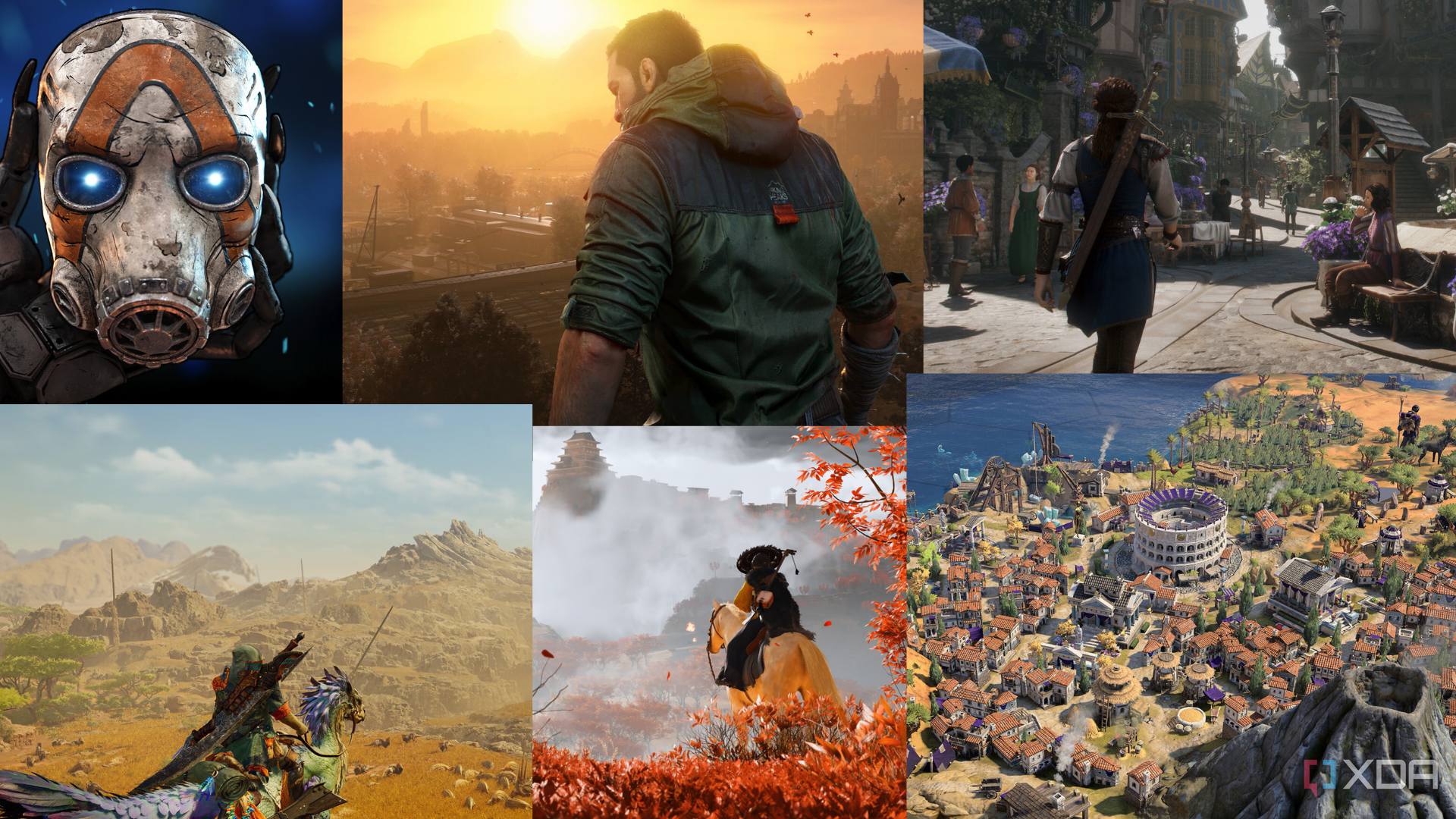PR disasters in gaming can do lasting damage, not just to the studios behind them, but to the games or franchises themselves, and even worse, the communities that support them. Whether it’s a botched launch, broken promises, or just plain lying, these moments often become bigger than the game itself. They shape perception of the game, fuel fan outrage, and sometimes take years to fix, if ever.

Related
8 most expensive video game failures of all-time
Not every game has a good launch, but these games were particularly disastrous, causing financial loss, studio closure and even industry-wide collapse
7 SimCity (2013)
Always-online backlash
EA’s 2013 reboot of SimCity was supposed to revive the beloved city-building series with new mechanics and next-generation graphics. Instead, it became a disaster the moment players tried to log in. The game’s always-online requirement, intended to support regional play and DRM, meant that overloaded servers made it nearly impossible to play for days after launch. Players who managed to get in encountered choppy gameplay, laggy servers, and random disconnects that sent them back into the waiting queue.
At the time, EA insisted that an online connection was necessary for the game to work correctly, but modders later demonstrated that the game could easily have been run offline. The explanation was seen as dishonest, and criticism mounted. Review scores dropped, and fans called for refunds. The debacle led to an instant drop in player numbers and ultimately killed all the momentum for the series. After the release of Cities: Skylines, Sim City fell into obscurity as EA focused on their cash cow, The Sims.
6 Battlefield 2042 (2021)
Broken promises and beta blunders
Battlefield 2042 was marketed as a return to large-scale multiplayer warfare, but what launched in November 2021 was anything but. The game was plagued with technical issues: game-breaking bugs, missing leaderboards, poor hit registration, and even worse vehicle handling. The introduction of “Specialists” in place of traditional class roles confused long-time fans and undermined the franchise’s tactical depth. The open beta, intended to build hype, instead spotlighted glaring problems. EA insisted the issues were based on an older build, but players weren’t convinced.
Post-launch updates did little to stem the tide of negative feedback. The game’s player count plummeted, and even months after release, Battlefield 2042 remained surrounded by controversy. Internal reports later revealed that the game’s development had been rushed and chaotic, worsened by the transition to remote work during the COVID-19 pandemic. This PR disaster prompted EA to reevaluate its approach to the Battlefield series, even restructuring development teams. While improvements have been made since launch, the initial failure left a lasting blemish on the game’s legacy and alienated a significant portion of its loyal player base.
5 No Man's Sky (2016)
Hello Games kept their promise
No Man’s Sky was hyped up to be a revolutionary space exploration game, with procedurally generated planets, seamless multiplayer, and a near-limitless universe to discover. The hype, largely fueled by interviews and media previews, painted an ambitious vision that captivated millions of gamers. But when the game launched in August 2016, players quickly discovered many of the promised features, such as real-time multiplayer encounters and diverse planets to explore, were underdeveloped or missing entirely.
The backlash was swift and brutal. Accusations of false advertising flooded forums, and Steam reviews immediately tanked the game's reputation. Lead developer Sean Murray went silent for months, avoiding media while Hello Games worked on fixes behind the scenes. The UK’s Advertising Standards Authority even launched an investigation into misleading marketing. Despite the disastrous launch, Hello Games eventually flipped the narrative. Through a lot of hard work and determination and years of free updates, like base-building, multiplayer, and visual upgrades, No Man’s Sky evolved into the experience fans had originally been promised.
4 Cyberpunk 2077 (2020)
It could never live up to expectations
After nearly a decade of anticipation, Cyberpunk 2077 launched in December 2020 and immediately fell flat. The game was riddled with bugs and performance issues, especially on PlayStation and Xbox consoles, where it often crashed or ran at sub-30 FPS. Players felt misled; early trailers and previews had little resemblance to the final experience for console players. To hide the game's blemishes before release, CD Projekt Red handed out very few copies to reviewers on PC, and for the most part, kept console footage out of public view until the game's eventual launch day.
The backlash was immediate. Refund requests flooded in, Sony pulled the game from the PlayStation Store, and multiple class-action lawsuits were filed against the company. CD Projekt Red issued multiple public apologies and committed to a long-term roadmap of fixes, but the damage was already done. The once-beloved studio lost a significant portion of the goodwill it had earned from The Witcher 3. Though Cyberpunk 2077 has since been patched and updated, its launch remains one of gaming’s most infamous failures and a stark reminder of the risks of over-promising and under-delivering.
3 Diablo Immortal (2018)
"Do you guys not have phones?"
At BlizzCon 2018, fans eagerly awaited news of a mainline Diablo game. Instead, they were blindsided by the announcement of Diablo Immortal, a mobile-only title developed in collaboration with NetEase. The backlash was instant and fierce. The audience at the event audibly booed, and one attendee openly asked during the panel if it was an out-of-season April Fool’s joke. The frustrated response from lead developer Wyatt Cheng, “Do you guys not have phones?”, went viral, becoming a symbol of the studio’s disconnect from its core fanbase.
Blizzard’s failure to understand its audience, particularly the dedicated PC player base, ignited a firestorm across social media and gaming forums. Fans accused the company of prioritizing bad monetization practices over creating an actual game, as memes mocking the tone-deaf reveal spread like wildfire on social media. The debacle damaged Blizzard's credibility and cast a dark shadow over the Diablo franchise. Although Diablo Immortal would eventually become a financial success, the PR stain lingered, souring any excitement for future announcements, including Diablo IV, for years to come.
2 Fallout 76 (2018)
Fallout fans weren't asking for this
Bethesda is well known for making some of the best single-player RPG games on the market, but when Fallout 76 debuted as an online game, it divided the fanbase. Some gamers liked the idea of being able to play Fallout with their friends, but others hated that they wouldn't be able to play the game on their own. But the thing that both sides hated equally was that there were no NPCs in the game at all and the majority of the story was told through recordings. And in true Bethesda fashion, after initial waves of criticism and dismay had been mostly quelled, players received a broken mess. At launch, the game suffered from countless bugs, performance issues, and some questionable enemy AI.
Critics and fans alike slammed its lack of NPCs, clunky building systems, and repetitive gameplay loops. But the technical problems were only the beginning. The game's Power Armor Collector’s Edition promised a high-quality canvas bag and power armor helmet but shipped with a flimsy nylon substitute. When fans complained and requested refunds, Bethesda offered a paltry $5 of in-game currency (Atoms) as compensation. Worse, a support ticket system glitch briefly exposed user data. The controversies snowballed, each adding fuel to the community’s anger. Bethesda tried to regain control with updates and content expansions, but the damage was already done. Fallout 76 became a running joke in the gaming community and a prime example of how not to handle a live-service launch.
1 Star Wars Battlefront II (2017)
The loot box controversy that changed everything
When EA launched Star Wars Battlefront II, anticipation was high. But what would eventually unfold became one of the worst PR disasters in gaming. The controversy began with the game's aggressive loot box system (now dubbed the Wilson loot box), which locked iconic characters like Darth Vader behind lengthy grinds unless players paid real money. The backlash was swift, with accusations of pay-to-win mechanics dominating headlines. A now-infamous Reddit comment from EA’s community team attempting to justify the system became the most down voted comment in Reddit history.
The intent is to provide players with a sense of pride and accomplishment for unlocking different heroes.
Public and political pressure followed, with governments in Belgium and the Netherlands investigating the game for predatory monetization and illegal gambling on products that were sold to minors. EA scrambled to disable microtransactions days before launch, but the damage was done. The outrage forced EA to overhaul its entire monetization strategy and triggered an industry-wide debate on loot boxes and gambling mechanics. Though the game was later improved through updates and content expansions, its launch remains a landmark moment in PR mismanagement. It reshaped how developers approach in-game purchases and regulations, proving that even the power of the Star Wars brand isn’t enough to weather a PR nightmare.
These games could have been great
These high-profile PR disasters weren’t just about the games being poorly made, they were about studios ignoring their fans, using misleading marketing tactics, and implementing predatory monetization practices that were intended to take advantage of gamers. Each title here serves as a reminder that, in the gaming market, community perception can make or break a release. Clear communication, honest expectations, and transparency are the only way for studios to have a successful launch without stirring controversy.

Related
15 most anticipated games of 2025 that you need to add to your wishlist
These are the most anticipated games of 2025 so you better add them to your wishlist before you miss out
.png)










 English (US) ·
English (US) ·